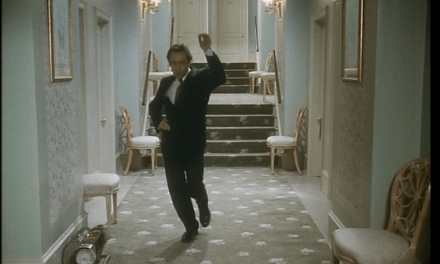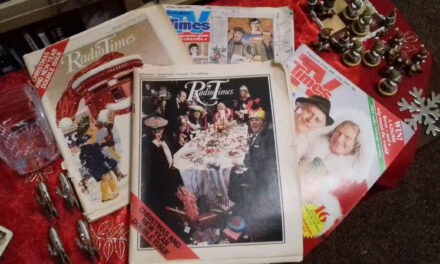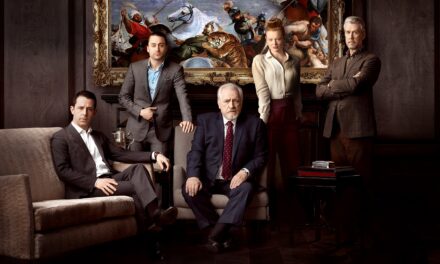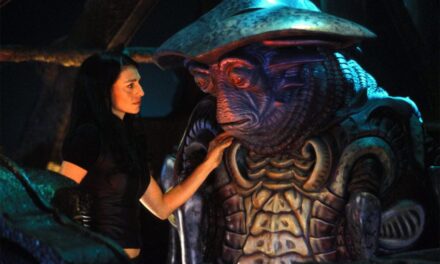As part of a project on multiplatform public service content, I’ve been examining the changing meanings of the term ‘multiplatform’ at the BBC. In one of my last interviews (at least for a while) at the BBC on the topic last week, I felt compelled to ask whether the meaning of multiplatform had changed so much, it was now a “dirty word”, to be avoided as much as possible.
The answer to that question was yes, albeit contingently (it seems that BBC producers can talk in as qualified a set of terms as academics!). The interviewee went on to discuss how the term was connected to a particular structure (Creative Future, 2006) and a way of working that the BBC now sought to move away from. He went on to discuss Ralph Rivera’s strategy for BBC Online as “1 Service, 10 Products, 4 Screens” as part of a general move away from bespoke builds for individual platforms.

This answer fitted with the much wider research body of evidence that we’ve been collecting, which suggests a move away from multiplatform commissioning and production at the BBC and an emphasis on the iPlayer – hence the axing of all multiplatform genre commissioners as part of Delivering Quality First (2011). As another interviewee put it: “For the BBC, the iPlayer is the future. Everything else is not.”
But what does this mean for how we experience the BBC – particular our digital encounters with the Corporation?
I’ve been thinking this question through for a paper I’m giving at Canterbury Christ Church’s ‘Audience, Users and Producers of public service content’ conference later this month. Whilst one of the most obvious things the BBC’s change of tactics means is the gradual withdrawal from 360° commissions that integrated experiences across platforms, the shift is also symptomatic of the Corporation’s retreat from some of its more confident (and at times wasteful) experimentation and innovation in digital cultures in the early and mid-2000s.
Faced with cuts and a strong neoliberal agenda of the current government, one of the BBC’s efficiency responses this has been a movement away from “hand cranked” websites at bbc.co.uk. With the culling of dedicated multiplatform producer roles (in all but a handful of programmes), over 180 bespoke built sites have been replaced by an autonomous and aesthetically standardised universal template. At the time of writing, the remaining 2 “hand cranked” sites are about to be transferred: Strictly Come Dancing and Dr Who.
The universal template that will replace them, see the images below, creates a great many efficiencies in production and makes the TV teams responsible for how the website will be used for their programme. One of the most immediate differences that can be noted is the increased emphasis on the iPlayer in the new template structure.
And perhaps this emphasis on iPlayer is hardly surprising given programming remains the Corporation’s core business. Moreover, given the need to create efficiencies, these seem an important and obvious cut to make. Nor is it a complete about face by the Corporation either: the automatic page system (or APS) was introduced under the “find, share, play” strategy of Creative Future. Yet leaving primary responsibility for these pages with TV production teams begs some important questions. Most pertinently: who will do the work?
In the past, issues have centred on the difficulty of bringing the different production cultures from digital and television together to make such multiplatform ventures successful. Our project focuses on some of the key distinctions in production culture between digital and television workers, which might be summed up in terms of the former’s iterative, planned economy and the latter’s orientation around a TX culture that emphasises overnight ratings figures. The significant downsizing of the multiplatform teams might remove these tensions, but it also places additional pressures on the TV teams.
As studies of creative labour show, work in the creative industries tends to be characterised by precariousness, over-work and underpay – even in the BBC, where freelance contracts are increasingly the norm. In this context, learning the tools to make use of the APS system, to ‘learn through play’(which we’re told is a hallmark of convergence culture), to update, to innovate or merely to upload can simply become ‘more work’ rather than the fulfilment of a key strategy. In this context, multiplatform may very well become a dirty word for more work. As many interviewees have told us, when push comes to shove in the pressures of production, “multiplatform is always the first to go”.
Where this leaves public service multiplatform content is a question we’ll continue to ponder as we trawl through our near 100 interviews in the lead up to the final event of the project: cowboysorindies.co.uk
Hope to see you there to discuss it in September!
Dr James Bennett is Senior Lecturer in Television Studies. His work focuses on digital television as well as TV fame. He is currently the Principal Investigator on a 2-year AHRC grant, multiplatforming public service broadcasting (AH-H018522-2), which examines the role independents and multiplatform productions play in the future of PSB. He is the author ofTelevision Personalities: Stardom and the Small Screen (Routledge, 2010) and the editor (with Niki Strange) of Television as Digital Media (Duke University Press, 2011) and (with Tom Brown)Film & Television After DVD (Routledge, 2008). His work has been published in Screen, Cinema Journal, Convergence, New Review of Film & Television, and Celebrity Studies Journal.
Twitter: @james_a_bennett



.png.jpeg.png)





